Gaza on brink of massive health hazard, disease risk looming, UNRWA warns
The Commissioner-General of the United Nations Relief and Works Organization for Palestine Refugees (UNRWA) has issued a warning about the dire conditions in Gaza since the Israeli regime launched its onslaught against the enclave early this month.
Philippe Lazzarini sounded the alarm on Friday, warning that Gaza is on the brink of disaster, with the risk of diseases spreading in the absence of fuel aid.
“Gaza is on the brink of a massive health hazard as the risks of diseases are looming. A few days ago, I warned that we will not be able to continue our humanitarian operations if we do not get fuel supply,” Lazzarini warned at a press conference in the holy occupied city of al-Quds.
The Israeli regime has cut the flow of water, food, medicine, and fuel to Gaza, in effect largely stopping hospitals from treating the wounded due to a lack of electricity for medical equipment since the start of the Israeli onslaught.
Lazzarini said the few trucks that had been able to enter the besieged region “are nothing more than crumbs that will not make a difference for 2 million people. What is needed is meaningful and uninterrupted aid flow. To succeed, we need a humanitarian ceasefire to ensure this aid reaches those in need.”
“The last remaining public services are collapsing, our aid operation is crumbling and for the first time ever, they report that people are now hungry.” The UN official said, adding that the grave situation of the people in Gaza is getting worse as “Civil order is collapsing.”
“At least 57 colleagues of mine are confirmed killed. In one day, we had confirmations that 15 were killed,” adding that thousands of others “share the same loss, fear and daily struggle of millions of Gazans,” Lazzarini said.
Since Hamas' surprise operation against the Israeli regime, dubbed Operation Al-Aqsa Storm, Israel has pressed ahead with a relentless bombardment of Gaza. The death toll in Gaza since the start of Israeli aggression has reached over 7,400 with more than 20,500 wounded.
Addressing those doubting that aid is not reaching those intended, Lazzarini said: “Many argue that aid cannot enter because of aid diversion. Let me be clear. We have solid monitoring mechanisms. UNRWA is a direct provider of assistance to people in need. All our vendors and partners are vetted against the sanctions list. We give aid to those who need it most. Our convoys and their routes are notified and de-conflicted. UNRWA does not and will not divert any humanitarian aid into the wrong hands.”
In related news, the International Federation of Red Cross and Red Crescent Societies (IFRC) issued similar warnings, describing the dire humanitarian situation in Gaza as "more than catastrophic".
The Israeli regime’s relentless airstrikes amid the continuous power cuts and fuel shortage are turning the hospitals into "graves", they insisted.
"The humanitarian situation in Gaza is more than catastrophic in the light of 12 hospitals and 32 healthcare centers becoming out of service due to lack of fuel or being bombed," Mey Sayegh, head of IFRC communications, said on Friday.
The lack of fuel in Gaza leads to water shortage, disease, and epidemics, and affects the humanitarian operations across Gaza, Sayegh stressed, adding that IFRC officials "have appealed since the start of the conflict to the necessity of allowing fuel entry into Gaza."
She also called for protecting the civilians who deliver the humanitarian aid, as she said four staff from the Palestinian Red Crescent Society got killed while they were on duty delivering aid to the disaster zones.
Also, the World Health Organization (WHO) chief said the agency had lost contact with its staff in Gaza, as well as its health facilities, health workers, and the rest of its humanitarian partners on the ground.
“This siege makes me gravely concerned for their safety and the immediate health risks of vulnerable patients,” Tedros Adhanom Ghebreyesus, the director general of the WHO, wrote on X, formerly known as Twitter.
Hamas warned that all internet connections and communications across Gaza had been cut as the Israeli regime forces were about "to perpetrate massacres with bloody retaliatory strikes from the air, land, and sea.”
In the meantime, the Palestine resistance movement’s fighters and the Israeli regime forces are engaged in fierce battles across the Gaza Strip as the regime forces expand their ground offensive after cutting the communications in the besieged area.
The al-Qassam Brigades, the military wing of Hamas, said in a statement that its fighters and Israeli forces were battling in two areas.
"We are confronting an Israeli ground incursion in Beit Hanoun (in the northern Gaza Strip) and east Bureij (in the center) and violent engagements are taking place on the ground," the statement said.
Human rights groups have warned that the complete telecommunications blackout in Gaza runs the risk of providing cover for "mass atrocities” by the Israeli regime forces.
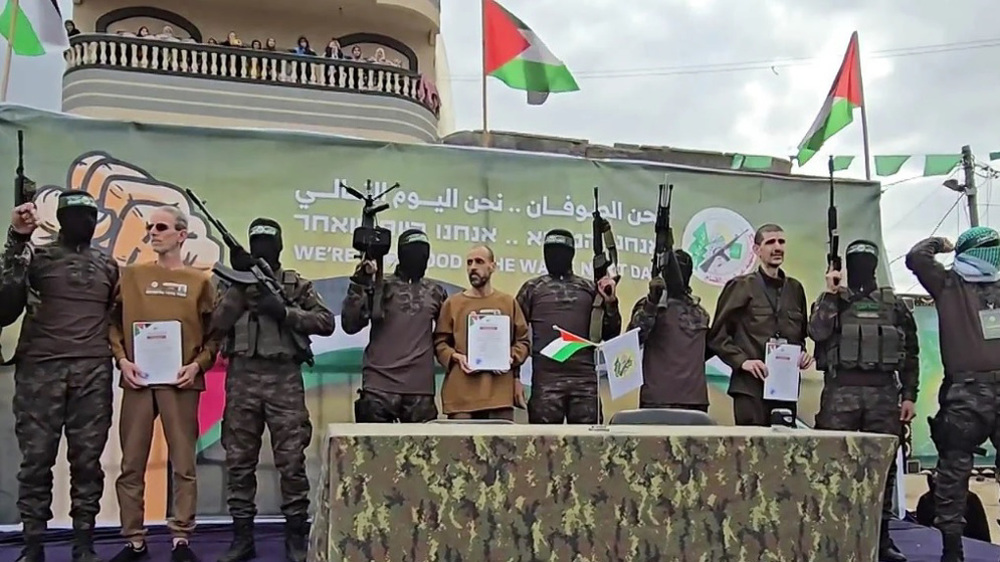
Father of Israeli captive says Netanyahu prolonging Gaza war for political survival
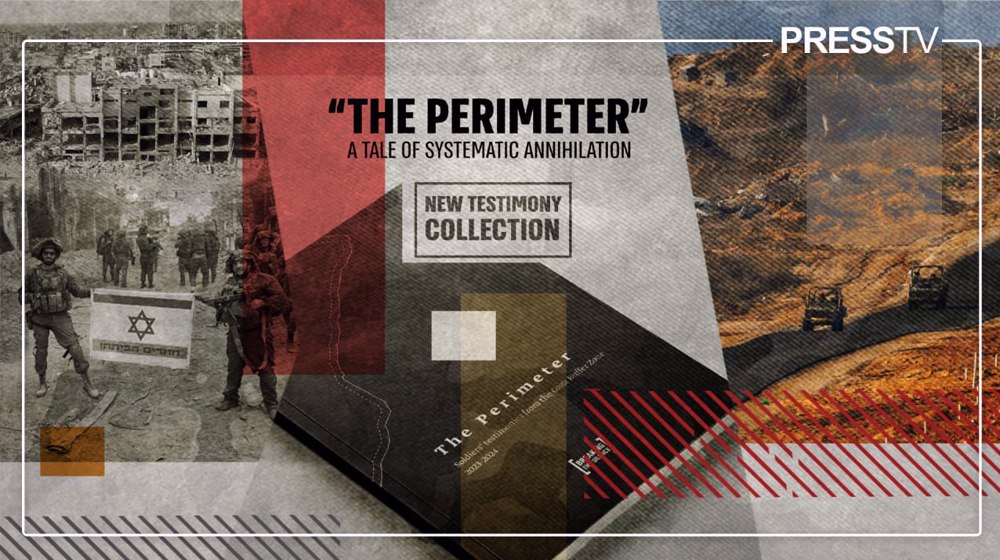
‘I’m bored, so I shoot’: Chilling testimonies detail Israel’s genocidal war on Gaza
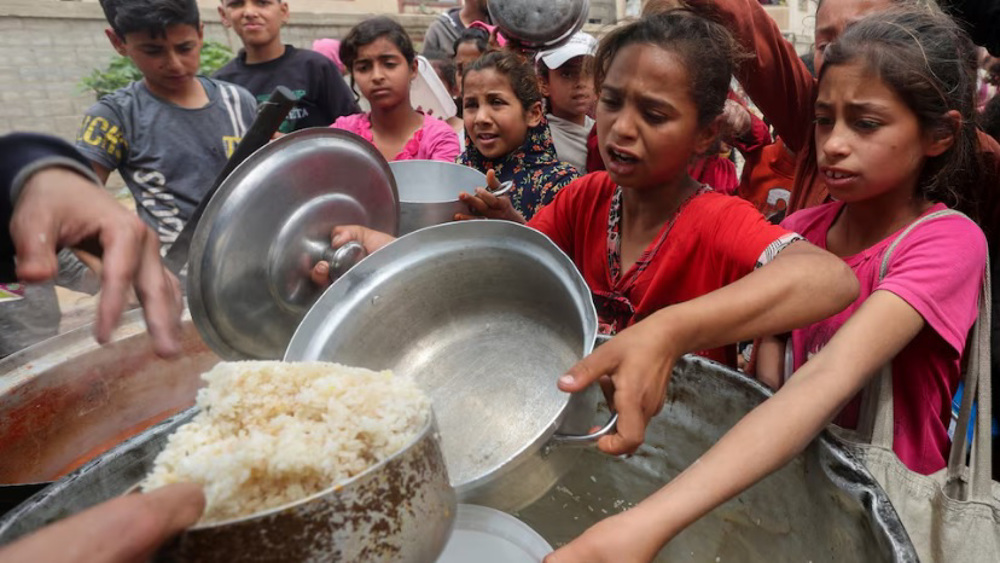
Famine in Gaza no longer a risk but a reality: Rights group
US airstrike on Yemeni capital kills at least 12 civilians
VIDEO | Yemeni air defenses shoot down another US MQ-9 drone over Sana’a
VIDEO | Press TV's news headlines
VIDEO | Gaza Million March in Islamabad condemns US-backed Israeli aggression
Red Crescent rejects Israeli military report on killing of Gaza medics
Yemen sanctions 15 US weapons manufacturing companies
Israeli military claims Gaza medics were killed mistakenly
Iran to expand off-grid solar to all government buildings


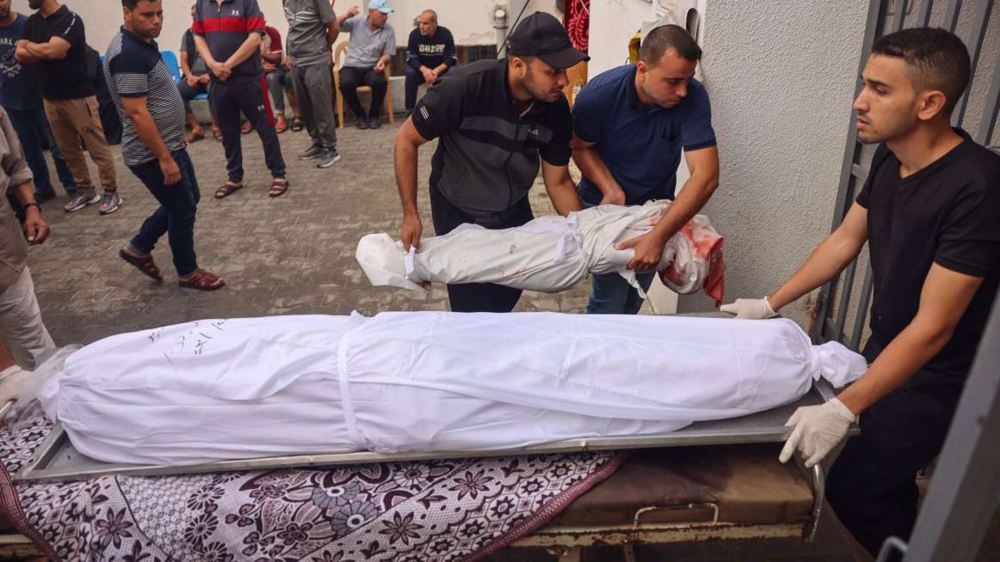
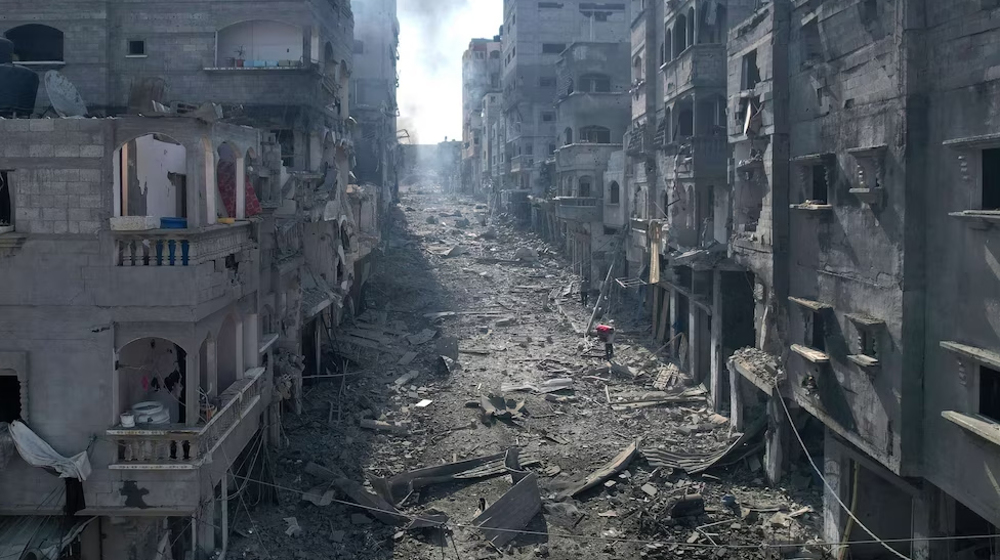
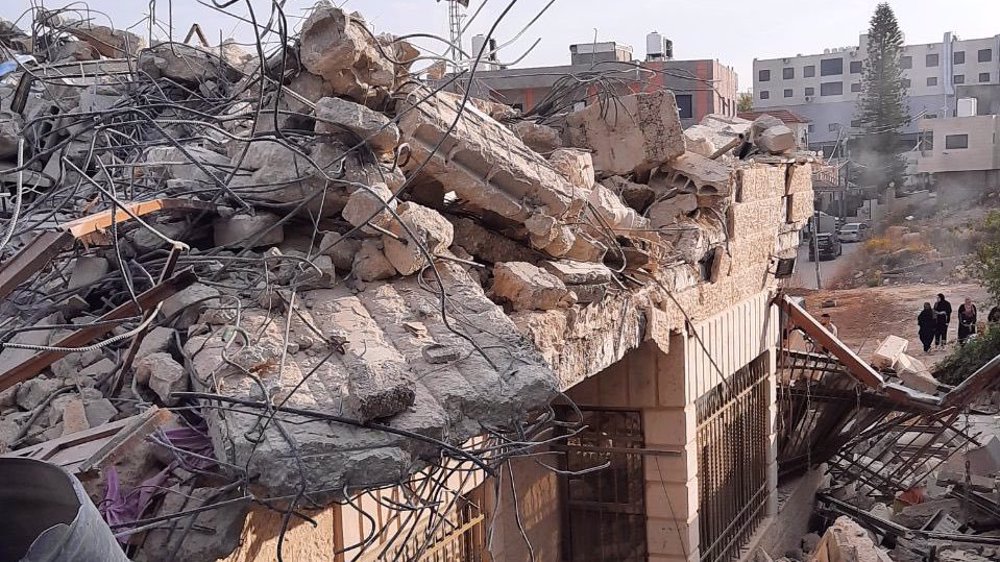



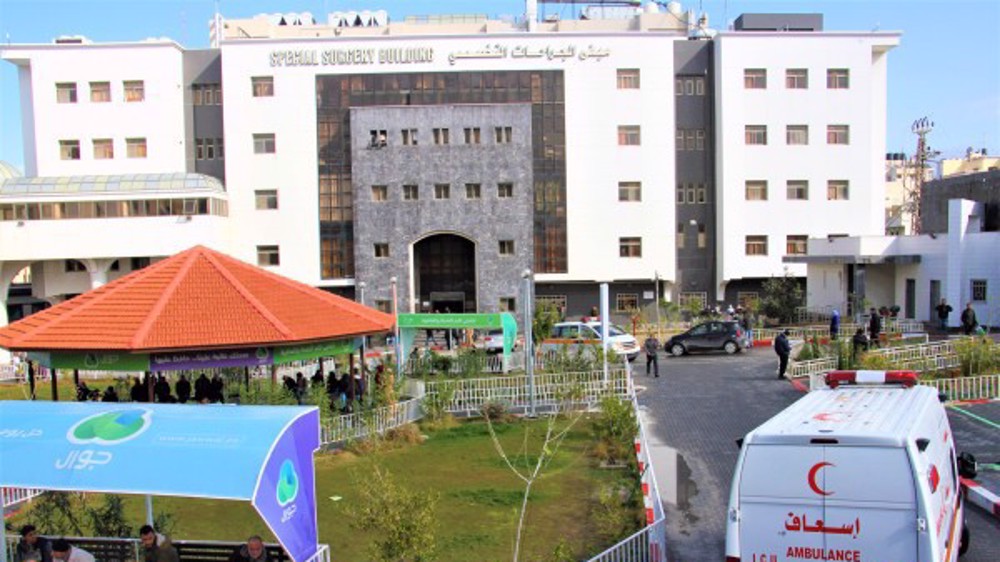
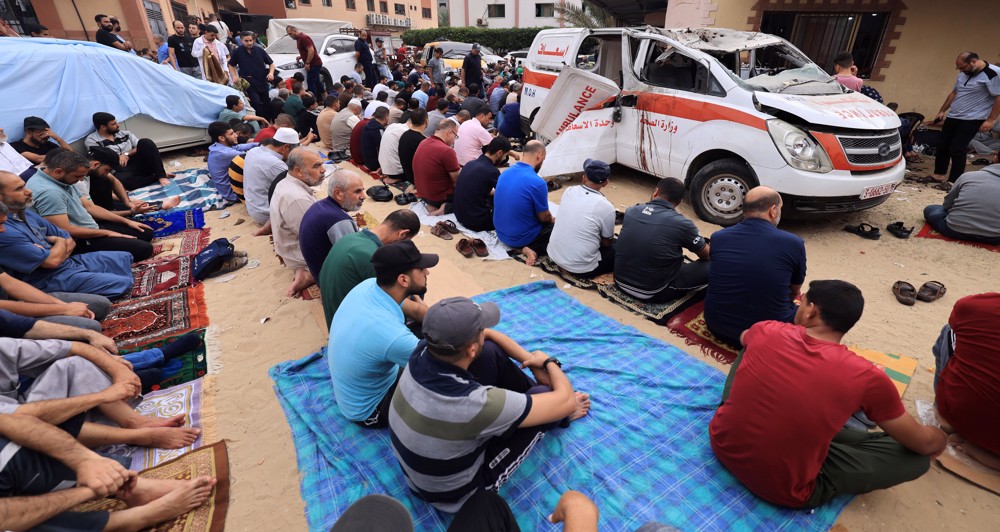
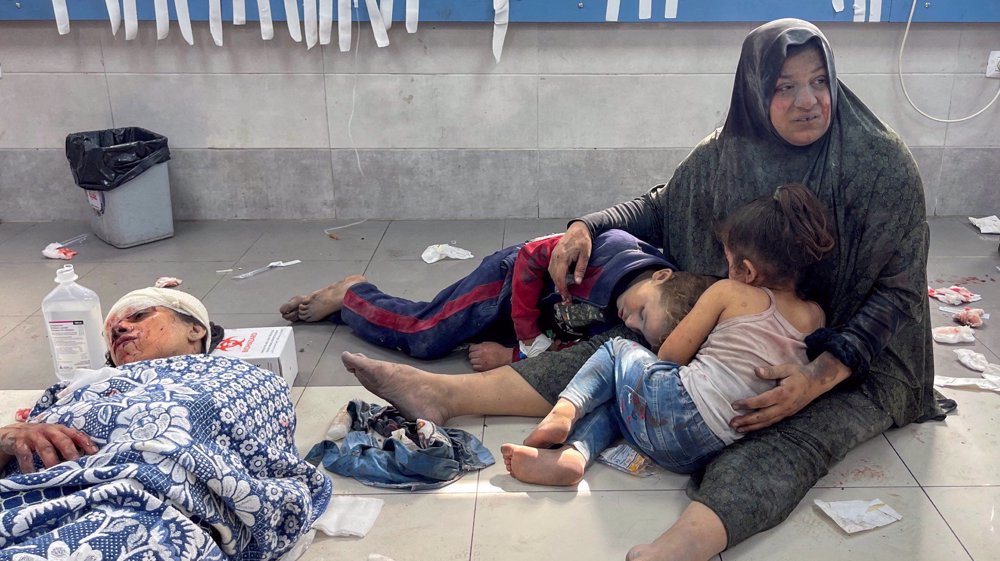

 This makes it easy to access the Press TV website
This makes it easy to access the Press TV website